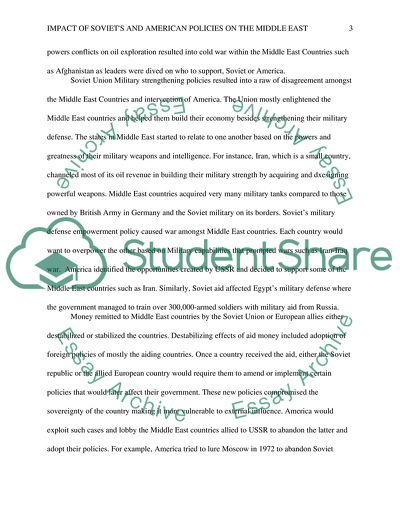Cite this document
(Impact of Soviet and American Policies on the Middle East Coursework Example | Topics and Well Written Essays - 2000 words, n.d.)
Impact of Soviet and American Policies on the Middle East Coursework Example | Topics and Well Written Essays - 2000 words. https://studentshare.org/politics/1837442-what-was-the-impact-of-soviets-and-american-policies-on-the-middle-east
Impact of Soviet and American Policies on the Middle East Coursework Example | Topics and Well Written Essays - 2000 words. https://studentshare.org/politics/1837442-what-was-the-impact-of-soviets-and-american-policies-on-the-middle-east
(Impact of Soviet and American Policies on the Middle East Coursework Example | Topics and Well Written Essays - 2000 Words)
Impact of Soviet and American Policies on the Middle East Coursework Example | Topics and Well Written Essays - 2000 Words. https://studentshare.org/politics/1837442-what-was-the-impact-of-soviets-and-american-policies-on-the-middle-east.
Impact of Soviet and American Policies on the Middle East Coursework Example | Topics and Well Written Essays - 2000 Words. https://studentshare.org/politics/1837442-what-was-the-impact-of-soviets-and-american-policies-on-the-middle-east.
“Impact of Soviet and American Policies on the Middle East Coursework Example | Topics and Well Written Essays - 2000 Words”. https://studentshare.org/politics/1837442-what-was-the-impact-of-soviets-and-american-policies-on-the-middle-east.


